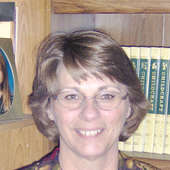Practice makes permanent
When the Gazette first moved toward pagination more than a decade ago, the new computers had an interesting feature that seemed endearing, at least initially.
It lost its allure after about the sixth recitation, however. When a mistake was made, a computer-generated robot-like voice would intone, "It's not my fault." It didn't take us long to find the necessary tool to silence the voice. After all, there are eight workstations in the newsroom and during the early days of pagination, errors were the order of the day. The computer robot would have probably come down with a serious case of laryngitis.
It's not hard to figure out where the computer learned the phrase. It is repeated daily across the length and breadth of the nation, and seemingly more so with every generation.
"It's not my fault. I was abused ... born into poverty ... molested ... teased ...unloved ... unwanted ..."
The litany is heard in living rooms and courtrooms every day. And in large part, our politically correct society tacitly supports the notion simply because it has sought to intervene in cases of abject poverty, abuse, molestation and now even teasing and bullying, to bring an end to these causal events. The war on poverty, foster care, prison sentences for molesters, and intervention through tolerance training for bullies and the like, come to mind.
Admittedly, the intentions of these interventions is right and good. The resulting "free pass" is not.
During a trip to Denver several years ago, we were grateful for our "Nebraska Free Pass" plates when we inadvertently made traffic blunders. However, if any of those blunders had resulted in property damage or physical injury, or even a traffic citation, that defense would not have stood up in a court of law. Nor should those who grew up under less-than-ideal conditions be given a free pass once they have reached a certain level of maturity, whether measured chronologically or psychologically.
There comes a time in every life when the influences from our youth cease to be justification for our failures, or our successes. Eventually, we must each stand on our own merits, living with and therefore enduring the consequences of our own choices. Too often, however, the "it's not my fault" litany works -- whether through guilt or manipulation. A broken home is a sad thing that has an undeniable consequence on every member of the family torn asunder by divorce. But it is not a free pass for anti-social, anti-family behavior in perpetuity.
Even in adulthood, bad choices result in harsh consequences. Jobs can be lost, families fractured, eviction notices posted, all because of a moment's indiscretion. Whether the decision is to overindulge in intoxicants, in casual physical intimacies, or to give unbridled vent to anger by lashing out at whomever is standing closest, being drunk, over-stimulated or enraged is not an automatic free pass.
Society has rules and laws in place that are designed to provide, for lack of a better term, behavioral boundaries. I erected many a physical barrier for my children before they grew up, most of them having to deal with parking lots, sidewalks and street crossings. These barriers kept them safe. And if they breached one, they quickly learned the age-appropriate consequences. As I would explain to them after due punishment was meted out, "I'd rather see tears now instead of a child-sized coffin tomorrow."
As they matured and proved themselves capable, physical boundaries were phased out. By the time they disappeared entirely, it was a matter of habit for the children to stop and to look both ways before crossing a busy street.
They also were raised with behavioral boundaries. There were some set in stone thou shalt nots in our house. Not coincidentally, most found their origins in the original thou shalts and shalt nots in Exodus 20. In fact, although modern man has legislated more thou shalt nots then I can count, again, most found their origins in the originals.
As is the case with the physical boundaries, so necessary to protect our children, behavioral boundaries also can become a matter of habit. Certainly, temptations still come, usually when we are most vulnerable -- hungry, angry, lonely or tired -- but even the vulnerable are not entitled to a free pass. But it does take practice.
Before practice can begin, however, it's important to define the boundaries. I think that may be where we've wandered off-course in recent years. We've handed out so many free-passes for bad behaviors, we've forgotten that they're inherently bad. Individually and collectively. The thief not only takes what isn't his, he loses part of himself with every theft. The adulterer not only wounds his spouse, but loses part of himself with every indiscretion. The liar loses trust, the covetous man loses contentment and the child who dishonors his parents fails to learn what it means to honor anyone, whether the cop on the beat, a spouse, or most importantly, God himself.
Jesus, who John refers to as the "Word become flesh," didn't use all that many words. He covers behavioral boundaries quite succinctly in Matthew, chapter 7, as the Sermon on the Mount nears its end, "So, in everything, do to others what you would have them do to you, for this sums up the Law and the Prophets."
We've heard it said time and again, "practice makes perfect." A more realistic observation may well be, "practice makes permanent." Be sure that what you're practicing is good, kind and honorable -- before it becomes permanent.

